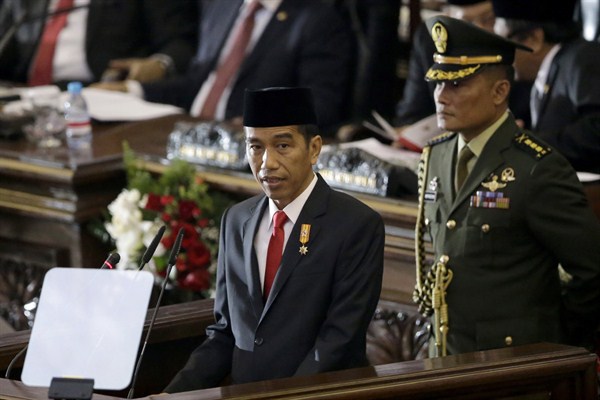On Oct. 20, 2014, Joko Widodo, popularly referred to as Jokowi, was sworn in as Indonesia’s new president—a champion of the people and pin-up for clean, open and efficient governance. What a difference a year can make. Over his first year in office, the limits to Jokowi’s power, political agenda and capacity to manage complex relationships have been repeatedly exposed. Powerful political oligarchs, an entrenched and entitled bureaucracy, an army eager to reinvigorate its relevance and a corruption-riddled justice sector—to name a few—were always going to present significant challenges to Jokowi’s presidency, and they didn’t delay.
One of the most immediate challenges to Jokowi’s executive power on taking office was an opposition coalition majority in parliament. His rival for the presidency, Prabowo Subianto, quickly maneuvered to ensure that the chairperson of all parliamentary commissions was from the opposition. Fortunately for Jokowi, Indonesia’s parliament has an appalling record of actually initiating, debating and passing key legislation. In the first 10 months, the new parliament passed only three laws. As a result, there has been little in the legislative arena, from either side, on which to flex political muscle.
But in an astute bit of politicking, Jokowi has managed to exploit the fact that national-level political alliances in Indonesia are fleeting, with the rival National Mandate Party, known as PAN, switching to ally with the president this month. Their 48 seats suddenly give Jokowi’s coalition a parliamentary majority—for now. And two significant opposition parties, Golkar and the United Development Party, or PPP, have squandered an opportunity to provide cohesive and critical opposition through protracted leadership disputes throughout 2015. One year in, Jokowi’s political constellation is at least shining slightly brighter.

